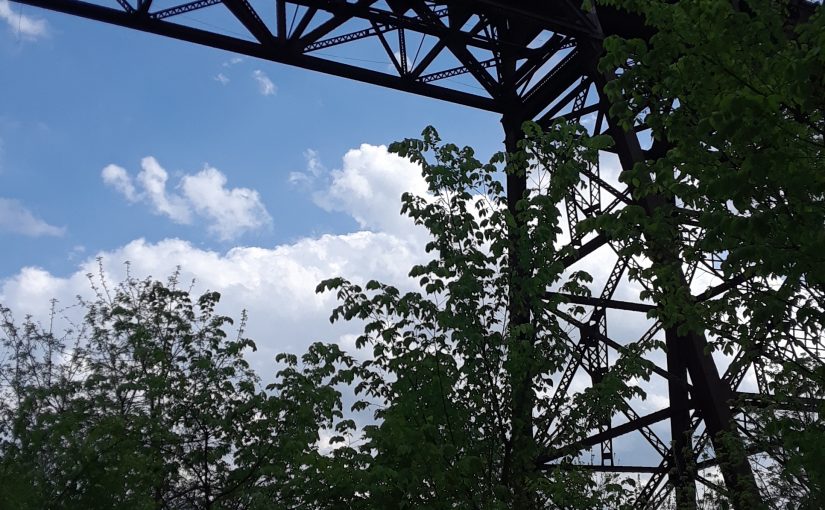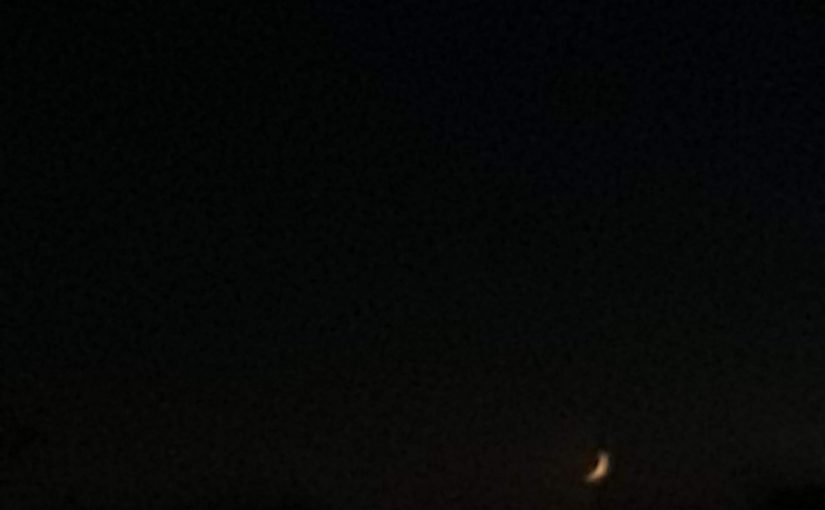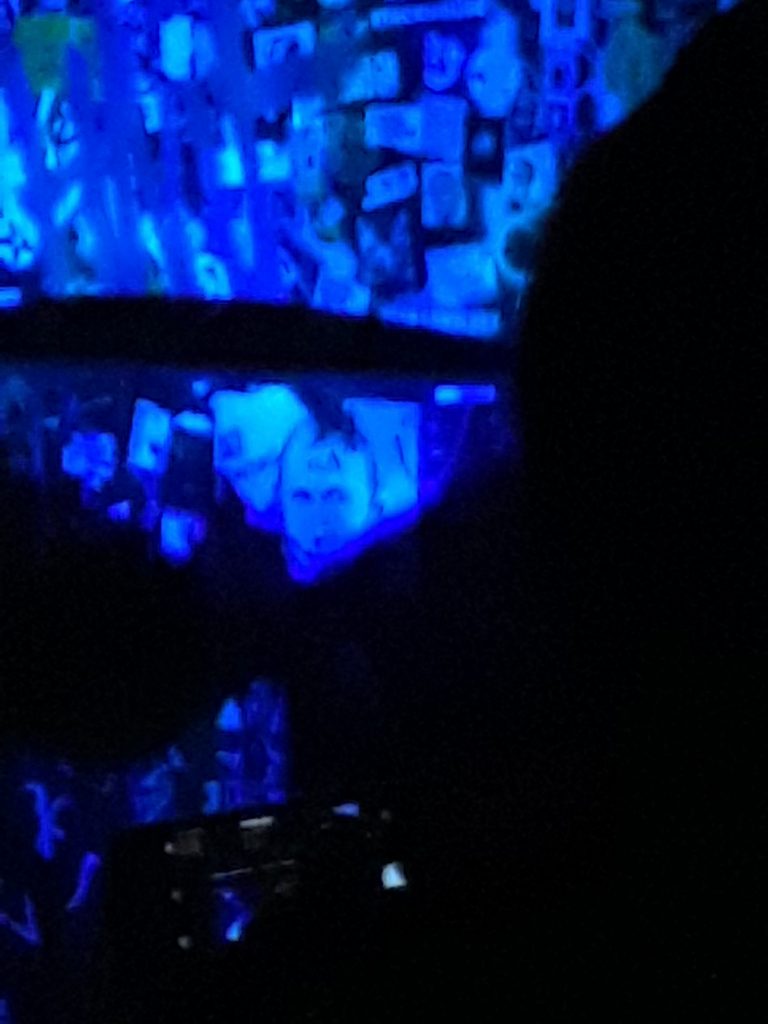Climate Crisis
by Amanda R. Howland
What to do in the face of the climate crisis?
When I was young, I had a friend who regularly protested the Iraq War. Once, he saw police aiming guns with rubber bullets at a woman in the middle of the street. He made the courageous choice to jump between her and the police, and he took the bullets to the back. He showed me the scars.
It wasn’t covered in the news, and the war raged on for years. My future husband would serve two tours.
I first heard about global warming when I was in third grade. It was called “the greenhouse effect.” This was in 1986.
Twenty years later, I went to see Al Gore’s movie, and I left the theater shivering with fear, but also remembering how protesting the Iraq war worked out for my friend.
I believed we were powerless. I had not yet had children.
For a time I learned from people who were were working to relocalize the economy in order to shorten feedback loops and become less dependent on oil. They were relearning skills our culture had forgotten that allowed them to “power down” by using less energy and resources for everything from water use, food production, heating, etc. There was a belief at the time that peak oil was near, and the decline of oil stores would cause societal breakdown before climate change. The hope was that if we could develop skills at the local level that would allow communities to become carbon neutral, than hopefully the ideas would spread, but at least our communities would be resilient.
But then fracking technology caught me by surprise and kept the machine running deep, cheap and hard enough to bring climate change to a crisis.
Not that I’d done much in the way of relocalizing and powering down, not much more than talking. It was something I put off. There is so much urgent business in front of us each moment of our brief time on earth: family, work, the urge to create, the urge to feel good. Endless housework and nagging maintenance of both our obnoxious stuff and our precious relationships.
When I had my daughter, Obama was president. He wasn’t perfect, but still… After Occupy, there seemed to be a progressive culture taking root. It seemed like LGBTQ rights were surging and white people were becoming more aware about police violence against black people. Despite my minimal involvement, local agriculture was on the rise. People were talking about slut-shaming and uncovering the buried history of indigenous people. Social scientists claimed that despite our heightened awareness of violence, there was a global downtrend in violence and in the treatment of children.
Things were hard and things were real, but as a species, it seemed like the interconnectedness of the internet was helping us grow. Personally, we didn’t have a lot of money, but our rent was cheap. It seemed like a good time to have a baby.
As my baby grew into a child, I would occasionally look at articles describing the climate horrors we could face by 2050, and I would look at my beautiful child and wonder what we had done, and I raged against the powerlessness I felt. Then I would google up some good news about climate technology or policy so I could get through my day. Or get to sleep at night.
Then Bernie ran for president and brought progressive ideas back to the Democratic party. Hillary was not ideal, but still…I was thinking we were about to elect our first woman president running on the most progressive democratic platform in a long time, thanks to the people-powered ideas Bernie and his supporters had brought to light.
Then Trump won. We who had been cozied up in liberal bubbles learned that the internet had not only been brewing intersectional feminism but also a vicious alt-right unashamed of ideas that seemed shockingly retrograde, bigoted and cruel.
My world, our world, suddenly tilted toward the worst climate projections and fears of fascism on top of that. As we shook ourselves awake from our stupor, grief and shock, we read that maybe calling our congresspeople is actually effective. I’m still not so sure about that. I have made many calls these last three years. It worked for the Tea Party, but, after all, the Tea Party asking for things that didn’t buck corporate agenda.
The Trump administration continues to ravage environmental protections, promote the industries that are causing global heating and burn down democratic institutions. Through bold lies, the Trump administration spreads fascism: in a world with no truth, people are smart to stand behind the strongman. They spread cynicism. The world is burning, so we might as well make money off of it.
Meanwhile, our rent has almost doubled, while our income has not. Each year our family has less and less. There is no money for extras, and we have to dip into our credit card in between paychecks. Everything feels insecure: health care, housing, even the food and water supply under climate change and deregulation.
The UN said that by 2030, the climate change may create a global “climate apartheid” with the rich hoarding resources and the rest of us, all of us, nonrich Americans as well as the rest of the world, suffering and dying from lack of basic neccesities.
In 2030, my daughter will turn seventeen.
Our family isn’t perfect. We use computers and drink coffee and use plastic. But, due to a lower income, we don’t consume as much as many Americans. We wear clothes until they get holes, and then sometime a bit longer. We very rarely dine out or buy food with a lot of packaging. We are vegan because it feels right to us. We use the right lightbulbs.
Research shows the four most powerful consumer decisions a personal person can make are to have one fewer child, take one less airplane trip, stop driving altogether and go vegan. These choices, or working toward these choices have a much greater impact than buying low energy lightbulbs and such that have been promoted over the last few decades.
We can spread the word and chip away toward these goals as best we can as individuals. I am poor, so I never fly, but I do drive a car. People can at least eat less meat.
These actions are individual ethical decisions. The only way to solve the climate crisis is to view it as the collective tragedy of the commons that it is. People cannot be expected to put huge amount of efforts into personal changes that statistically amount to nothing.
Here is an example. My community used to offer near-universal curbside recycling. Now, because China doesn’t want any more our plastic crap, the whole economics of recycling has changed, and our city no longer offers curbside pickup for apartment buildings. I’d have to drive my recycling across town before 3:30 P.M. on weekdays only, knowing that much of it would be either tossed out or transported large difference using up fossil fuels. Also knowing that only a small percentage of apartment dwellers in my city are trucking their stuff down to the center. It’s futile. Green options need to be built so that they become societal default. People want to do the right thing, but we need a critical mass in order for it to work.
We need a massive, comprehensive infrastructure overhaul. The science and technology is there. But our government has been coaxed, coerced and gerrymandered into a corporate state, with corporations even writing the laws.
American identity has been manipulated. We have been turned into “consumers”, when first we are citizens. Actors in a democracy.
The summer of 2018, I longed for the change we need and I called to mind the idea of a Green New Deal. I wrote the words GREEN NEW DEAL and put them above my desk. I googled the term and saw that it had been used by the Green Party and several others before as a way to describe proposals that could work together to slow, stop and begin to repair the damage done to the planet as well as create quality jobs. I thought it could also be a way to heal our country and win over some people who voted for Trump primarily because they had been betrayed by neoliberalism from both parties.
I called Sherrod Brown’s office and suggested as much to a bored sounding man, who told me that nothing would change with the current administration and state of congress. It was an election year and progressive Brown was up—I thought maybe democrats could align behind the message. The volunteers at Marcy Kaptur’s office were a little more receptive. I told them everyone I know is underemployed. Wages have been stagnant since the 1980’s. Low unemployment rates hide the economic reality.
Within the next few months, several changes brought climate and economic justice to the top of the news. Democrats took back the house with new progressive members. The devastating U.N. report on the urgency of the climate crisis was released saying we had just twelve years (eleven as of this writing) to drastically cut emissions in order to maybe avoid environmental devastation by as early as 2040. (My daughter will turn twenty-seven in 2040.) Newly elected Alexandria Ocasio-Cortez joined youth activists in the Sunrise Movement in occupying Nancy Pelosi’s office. Their demand was immediate and far-reaching legislation to address environmental problems and justice issues at once.
The Green New Deal.
We need to unite behind this idea. We need to unite behind candidates who support this idea. This is our hope. The Green New Deal was ridiculed from the start by Fox News, who covered it more than any other channel. Nancy Pelosi also made fun of what she called “the green dream”, but that didn’t kill the dream as most top democratic candidates for president support the Green New Deal.
In February of this year, Rep. Alexandria Ocasio-Cortez, D-N.Y., and Sen. Ed Markey, D-Mass. introduced the Green New Deal non-binding resolution. It’s a fourteen-page document that outlines goals that are intended to be filled in with legislation.
You can read the full text for yourself here.
This video best expresses the vision of the Green New Deal:
Here’s one way to pay for it:
What to do? Communicate. Communicate at all levels.
Tell your friends and family. Call your representatives. Here in Cleveland, Marcy Kaptur has not yet endoursed it, but Marcia Fudge has. Activists spent a great deal of time communicating with her, and though reluctant at first, she ultimately gave her endorsement.
Keep in mind that while the Green New Deal is the large-scale Federally-funded program we need, much of the decision-making embedded in the resolution will take place at the local level.
Let the idea spread. Our only hope is to aim for the most progressive vision possible because it will be fought at all levels. But it could be beautiful.
Educate your family and friends. Call your members of congress. Join Sunrise, Global Climate Strike, Extinction Rebellion, green labor group BlueGreen Alliance or other organizations and participate in climate strikes and actions. Check out Greenpeace’s social media hive or resistbot. Get behind the Green New Deal and communicate. Vote for the candidate that most strongly supports the Green New Deal. Work to support that candidate. Here is a link to Greenpeace’s ratings of presidential candidates:
After the election, there will be much work to do locally and personally for many years to come to secure resiliance. Right now support the Green New Deal and the candidates who will support with greatest force and commitment. As of this time of writing, that candidate is Bernie Sanders.
If we all schedule an hour a week to communicate in various intelligent, efficient ways about the Green New Deal, the idea will spread. My local community even passed a resolution supporting the Green New Deal along with another environmental house bill. Communication can include letters and phone calls to members of congress, face-to-face conversations with people in your community, strikes and demonstrations, or using whatever platform and voice you have available to you.
Also consider the top 100 producers of greenhouse gas emissions. There are people behind the decisions that are causing environmental devastation, and you can communicate with and about them and hold them accountable. Here is a list:
There is much work to do, but our best hope is for us to unite behind The Green New Deal and progressive candidates.



